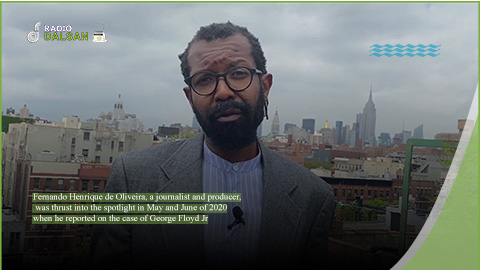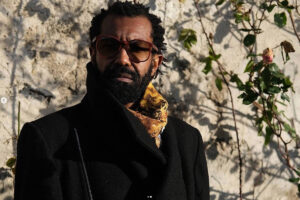A Journalist's Legal Battle Against Racial Discrimination in Brazilian Media

The Struggle Against Structural Racism in Brazilian Media: A Journalist's Legal Fight
Fernando Henrique de Oliveira, a journalist and producer, was thrust into the spotlight in May and June of 2020 when he reported on the case of George Floyd Jr. for CNN Brazil. The tragic killing of the Black security guard by a white police officer in the United States ignited a global wave of anti-racist protests, reaching several countries, including Brazil. Oliveira, who is also Black, shared deeply personal testimony during his coverage, speaking about the racism-related prejudices he had experienced throughout his life.
Months after the incident, Oliveira filed a lawsuit after he was fired from his position, citing pay disparity as the primary reason for his dismissal. At first glance, the case seemed like a typical labor dispute. However, upon closer examination, it revealed a broader fight against “structural racism,” a term that has become increasingly popular in discussions about workplace inequality, particularly among non-white workers.
In the lawsuit, Oliveira did not accuse any individual person of discrimination but instead targeted the systemic racism within the company he worked for. During his reporting on George Floyd Jr.'s case, Oliveira pointed out instances where racial discrimination was evident. One specific example he shared was when he was asked to give a personal testimony on air about his own experiences with racism. He compared the request to an absurd scenario: a Jewish reporter being asked to cover a neo-Nazi protest while being forced to recount personal experiences of anti-Semitic persecution during the rally.
Although instances of racism in Brazilian newsrooms are common, legal actions like Oliveira's are extremely rare. The National Commission of Journalists for Racial Equality (Conajira), founded in 2010, has reported that such cases are largely unheard of. "In general, Black and Brown journalists avoid taking legal action when they face workplace discrimination," said Valdice Gomes, a member of the commission. "Some victims might sue colleagues, but very few take on their employers."
For many, the fear of jeopardizing their career security outweighs the desire to fight for justice. They prioritize job stability over standing up against discrimination, fearing they might damage their reputations within the industry.
Oliveira’s case, which is now under judicial secrecy, was reported by Piauí in an article published on April 4. The lawsuit does not accuse any individual of racial discrimination but instead focuses on the systemic bias within the media industry. Oliveira’s claims include several examples of discriminatory practices, one of which involved being asked by a senior editor to share personal anecdotes of racism on air. He also recounted a specific incident where he was verbally attacked while filming outside a football stadium in Paris, which he was then asked to recount as part of his professional testimony.
Oliveira's allegations go beyond personal experiences. He claims that Black journalists earn less than their white counterparts for doing the same work. He highlights an incident in which he was asked to provide security for a public figure while working late at night in New York. Oliveira also recalls a bizarre situation where he was tasked with transporting 38 pieces of equipment, including microphones and an iPhone, after being dismissed.
One of the key reasons for his dismissal, Oliveira claims, was a salary dispute. The company allegedly refused to match the salary he earned in the United States, a move that led to his termination when he was reassigned to Brazil.
Despite the serious nature of his claims, the company involved denies all allegations of racial discrimination. The company's attorney has dismissed Oliveira's lawsuit as “frivolous,” claiming that if the company were indeed racist, it would not have allowed him to speak openly about his experiences with racism. The lawyer argued that the company has always been supportive of its diverse workforce, providing opportunities for Black and other minority journalists to share their stories.
However, Oliveira remains firm in his stance. He believes the systemic racism within the media industry continues to be overlooked and that his case is a powerful reminder of the ongoing struggle for equality, not just in the newsroom, but in workplaces across the world.
His legal action has become a symbol of the fight against racial discrimination in Brazil's media industry, raising important questions about the fairness and equity of treatment for Black journalists. It serves as a call to action for change in how companies address racial bias and the challenges faced by non-white workers.

